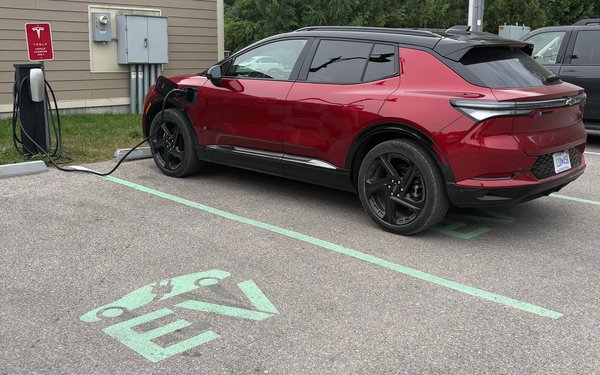
Buyers procrastinating the purchase of an electric
vehicle are running our of time.
The deadline for a federal tax credit expires on Tuesday.
“As part of the mega-tax bill signed into law in
July, the expiration date of the federal clean vehicle tax credit was pushed up to Sept. 30 from its original expiration date of 2032,” according to the Detroit Free Press. “That means the deadline for
snagging a tax credit of up to $7,500 on a qualifying new EV, and up to $4,000 on a used EV, is closing in.”
Cars.com released data on Sept. 18 showing that
nearly half of consumers considering buying an EV are now accelerating their purchases.
advertisement
advertisement
“EV sales just hit a new record in the U.S.: This month, they’re
on track to make up 12.2% of new car sales, according to J.D. Power and Associates,” reports Fast Company. “Meanwhile, gas car sales dropped compared
to the same month last year.”
The electric vehicle tax credit was created by President George W. Bush, who initiated a tax credit program for fuel-efficient vehicles in 2005
and expanded it in 2008 to include plug-in vehicles with the goals of reducing U.S. dependence on foreign oil and lowering emissions.
As of late, the incentives have created some
anxiety for dealers, who report that the IRS has been slow to pay for the tax credits since mid-September.
“The delays began in earnest in mid-September, according to accounts
shared with CNBC from three dealers in different parts of the country,” according to CNBC. “Auto analysts and two national trade associations
also confirmed to CNBC dealership reports of delays. The dealerships say it forces them into a tough choice: carry the cost to keep offering the credit, or pull back and risk losing vehicle
sales.”
Some analysts expect EV sales to fall off significantly for the rest of the year.
“Karl Brauer, executive analyst with iSeeCars.com,
said once the federal tax credit ends, EV sales are ‘going to crater. It’s going to be quite the whipsaw effect. You’ve got the rush to the dealership to take advantage of these
incentives now ... but what’s going to happen in the next three to six months? There’ll be almost no buyers,’” according to the Detroit Free Press.
Brauer said EVs comprise about 8% of the total U.S. new vehicle market share, and he expects that to drop to 1% to 3% by year's end and settle in at 4% of total market share by early next
year.
But not all analysts agree.
“In a recent survey with Morning Consult, analysts at Cox Automotive found that 65% of respondents who were in the market
for a new EV said they would still consider an EV without the tax credit,” according to Fast Company. “Even though the end of the incentive has spurred sales, the tax credit
generally hasn’t been the deciding factor for most buyers, says Loren McDonald, who runs an EV data and analysis firm called Chargeonomics.”